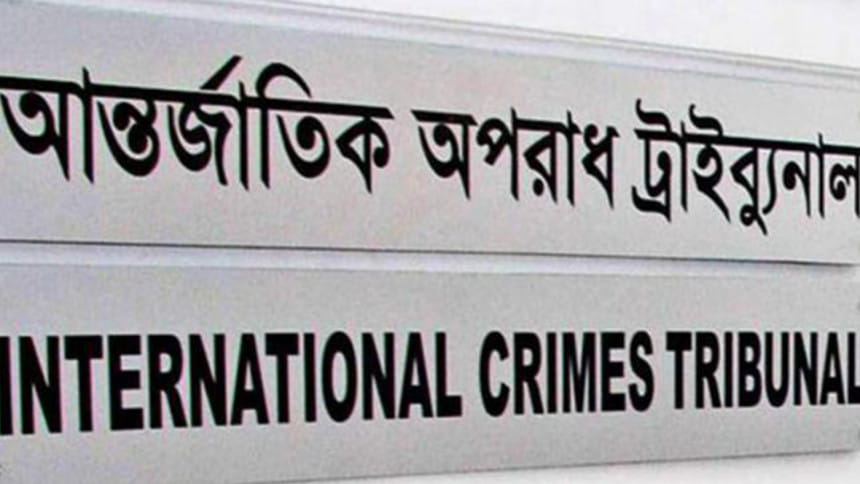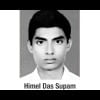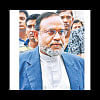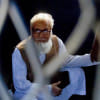Death penalty for 4 war criminals

The International Crimes Tribunal-1 yesterday found four Moulvibazar men guilty of committing genocide during the Liberation War and handed down death penalties to all of them.
The four, who were members of notorious Razakar force, have also been given jail until death for another charge -- committing crimes against humanity. However, the jail term would naturally be merged into the death sentence, the tribunal said.
“In the case in hand, it stands proved that the accused persons were conscious and a culpable part of the common design and criminal enterprise,” the three-member tribunal observed.
“Their [the convicts'] culpable acts and conduct as have been found proved formed a part of attacks which was intended to wipe out the Hindu civilians, freedom fighters and pro-liberation civilians,” it added.
Among the convicts, Akmal Ali Talukder, 76, is now in jail and was hauled before the tribunal yesterday. Convicts Abdun Nur Talukder alias Lal Miah, 62, Anis Miah, 76, and Abdul Musabbir Miah, 64, are on the run. All of them are from Rajnagar upazila of the district.
The tribunal, led by Justice Md Shahinur Islam, directed the home secretary and the inspector general of police to take necessary steps to arrest the fugitives.
The other two members of the tribunal are Justice Amir Hossain and Justice Md Abu Ahmed Jamadar.
During the Liberation War in 1971, Akmal was a member of the local peace committee, an anti-liberation organisation, who later joined Razakar Bahini like the three other convicts to commit genocide and crimes against humanity, according to the prosecution.
“Despite being Bengali civilians [they] opted to collaborate with the Pakistani occupation army, in exercise of their membership in Razakar Bahini, a paramilitary force in accomplishing the grotesque mayhem,” the tribunal said.
Later, the three others except Akmal got involved in Jamaat-e-Islami, a political party that vehemently opposed the Liberation War, the prosecution said.
Syed Haider Ali, conducting prosecutor of the case, expressed satisfaction over the verdict saying, “We have got justice.”
Abul Hasan, state-appointed defence counsel for the fugitives, however, said he was aggrieved by the verdict and expressed the hope that if the fugitives surrendered and challenged the verdict with the Supreme Court, they would get justice.
According to the International Crimes (Tribunals) Act, 1973, a war crimes convict can file an appeal with the SC within 30 days from the date of verdict's pronouncement.
With the latest verdict, the war crimes tribunals have so far delivered 33 judgements against 73 people. Forty-seven of them have been sentenced to death.
'ENEMIES OF MANKIND'
The tribunal handed down death penalty to the four convicts for an act of genocide where 59 Hindu men of Panchgaon village under Rajnagar upazila were killed, Hindu women were raped and at least 132 houses were looted and torched between May 7 and 8, 1971.
“… we are of the view that the perpetrators intended to effect destruction of the civilians belonging to the Hindu religious group by causing indiscriminate killing on a massive scale, sexual abuse, wanton looting and burning down houses,” the tribunal observed.
They were given “imprisonment for life till biological death” for an offence of crimes against humanity where two Hindu men of Pashchimbagh in Rajnagar were abducted, confined, tortured and killed and their houses were looted and torched between November 24 and 25.
Not only the actual perpetrators (Pakistani army) but also all the four accused “who remained consciously concerned with such shocking and horrendous crimes committed against humanity would be known as the enemies of the mankind,” the tribunal observed.

 For all latest news, follow The Daily Star's Google News channel.
For all latest news, follow The Daily Star's Google News channel. 








Comments